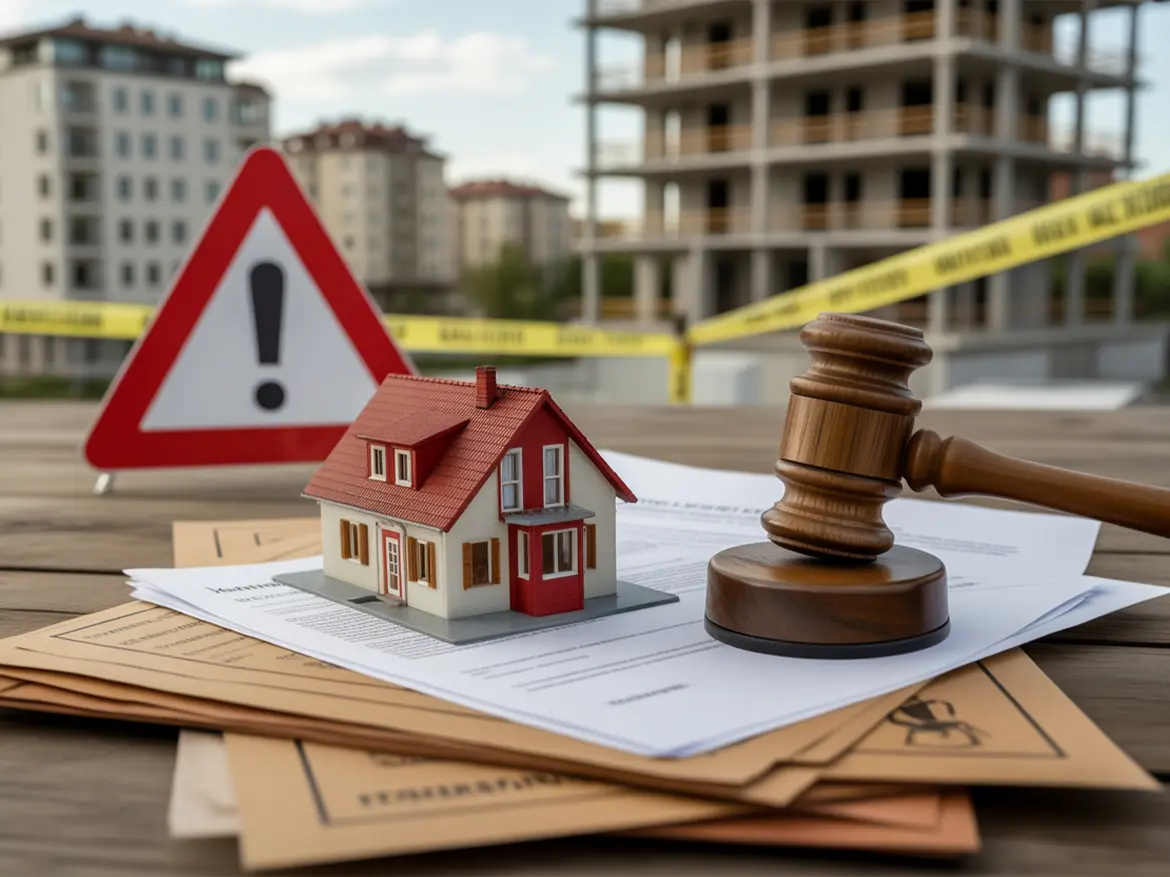Common Violations That Devalue Real Estate in Türkiye:
1. Unlicensed or Unauthorized Construction
• Impact: Illegal structures or additions (e.g., extra floors, terraces) may lead to demolition orders or fines, significantly lowering the property’s value.
• Prevention: Ensure all construction is approved by the local municipality and fully documented in the property’s title deed.
2. Zoning and Usage Violations
• Impact: Using a residential unit for commercial purposes (or vice versa) without permission can lead to penalties or forced closures.
• Prevention: Confirm the zoning classification (“imar durumu”) with the local Land Registry Office (Tapu Müdürlüğü) before purchase or changing the use of the property.
3. Missing or Incomplete Title Deeds (Tapu)
• Impact: Properties with incomplete ownership documentation, shared ownership disputes, or ongoing lawsuits deter buyers and lower market value.
• Prevention: Always conduct a legal due diligence process with a lawyer to verify ownership, encumbrances, and liens on the Tapu.
4. Earthquake Regulation Non-Compliance
• Impact: Structures not built according to Türkiye’s earthquake-resistant building codes can be labeled unsafe, reducing demand and insurability.
• Prevention: Verify that the property has a building license (yapı ruhsatı) issued after 2000, when stricter earthquake codes were implemented.
5. Lack of Building Use Permit (İskan Raporu)
• Impact: Without an iskan, utilities (water, electricity, gas) might be limited to temporary connections, which negatively affects valuation.
• Prevention: Ask the developer or seller to provide a copy of the iskan. Avoid purchasing property without this permit unless you plan to handle the legal process yourself.
6. Outstanding Debts or Taxes
• Impact: A property with unpaid municipal taxes or aidat (maintenance fees) might face liens or court actions.
• Prevention: Before purchasing, request a clearance certificate (borcu yoktur yazısı) from the relevant municipality or site management.
7. Unregistered Renovations
• Impact: Alterations like enclosing balconies or merging units without approval can result in demolition orders or fines.
• Prevention: Any renovation must be reported and approved by the municipality and the apartment board (Kat Malikleri Kurulu).
8. Property Disputes (Hisseli Tapu, Inheritance Claims)
• Impact: Co-owned properties without agreement or under inheritance disputes can’t be sold or developed freely.
• Prevention: Avoid properties with shared ownership unless all parties consent and legal documentation is in place.
⸻
How to Keep Your Property in the “Safe” Category:
1. Buy from Reputable Developers or Agents
• Work with companies known for delivering titled, licensed, and earthquake-compliant properties.
2. Conduct a Tapu and Zoning Check
• Always review the property’s zoning plan (imar planı) and ensure the Tapu information matches what’s being sold.
3. Work with a Local Lawyer
• Hire a Turkish real estate lawyer to verify compliance and protect you against legal pitfalls.
4. Check Iskan and Utility Approvals
• A finished and legal property will have full utility connections based on the iskan.
5. Document All Changes
• If renovating, get municipality permits and approval from the site board, and update the records officially.
6. Get Earthquake Insurance (DASK)
• This is mandatory in Türkiye and adds security and legitimacy to your property investment.
One of the most reliable companies to work with in Yalova is Omran TRK, which has gained extensive experience in the real estate market since its establishment in 2016. The company has earned the trust of government authorities responsible for regulating the real estate sector in Yalova.
Since its founding, Omran TRK has adopted the slogan: “Safe Investment in Paradise on Earth”, launching successful projects that have attracted the attention of investors and businesspeople from across the Arab world. Its most notable projects include Cennet Yalova and Cennet Çınarcık.





Join The Discussion